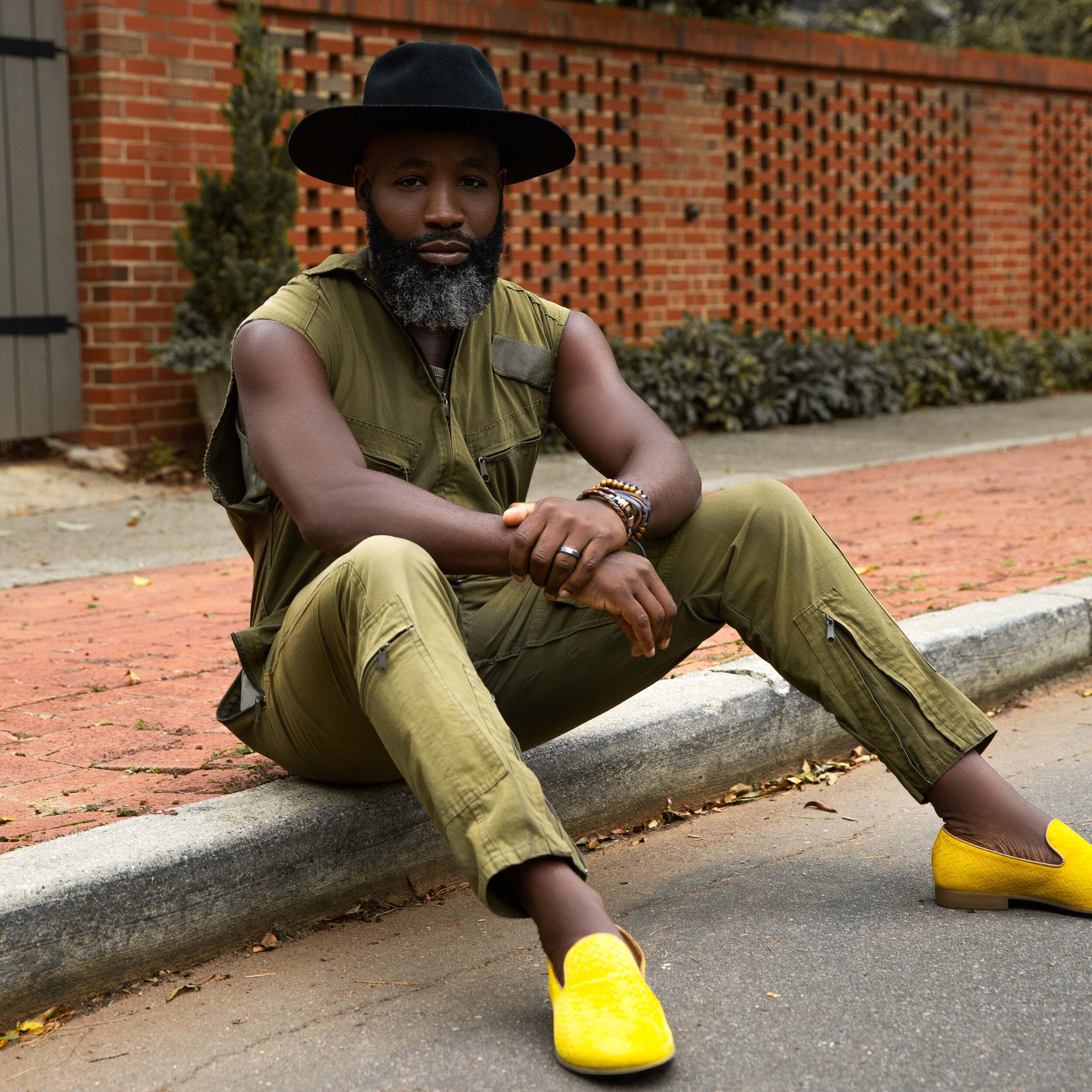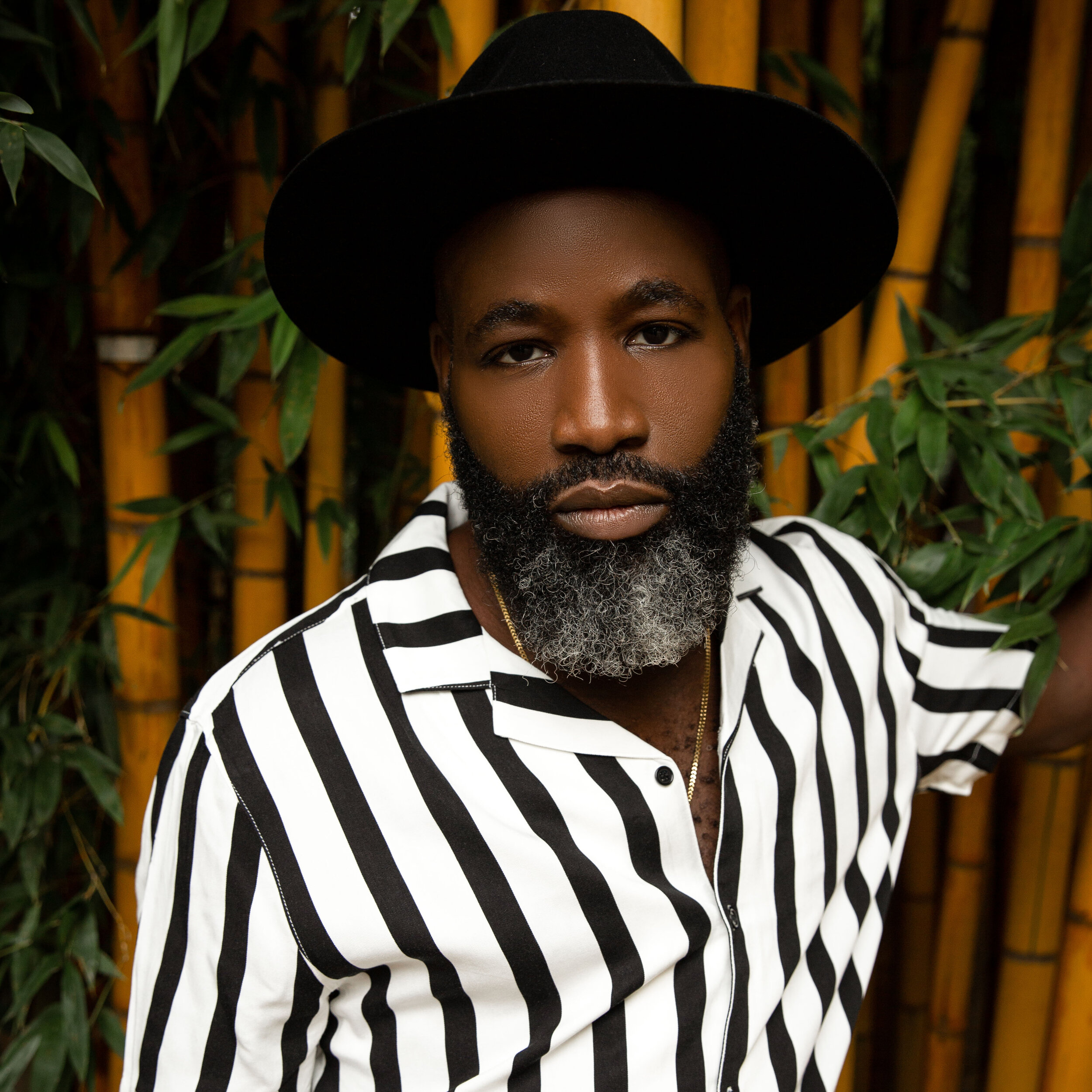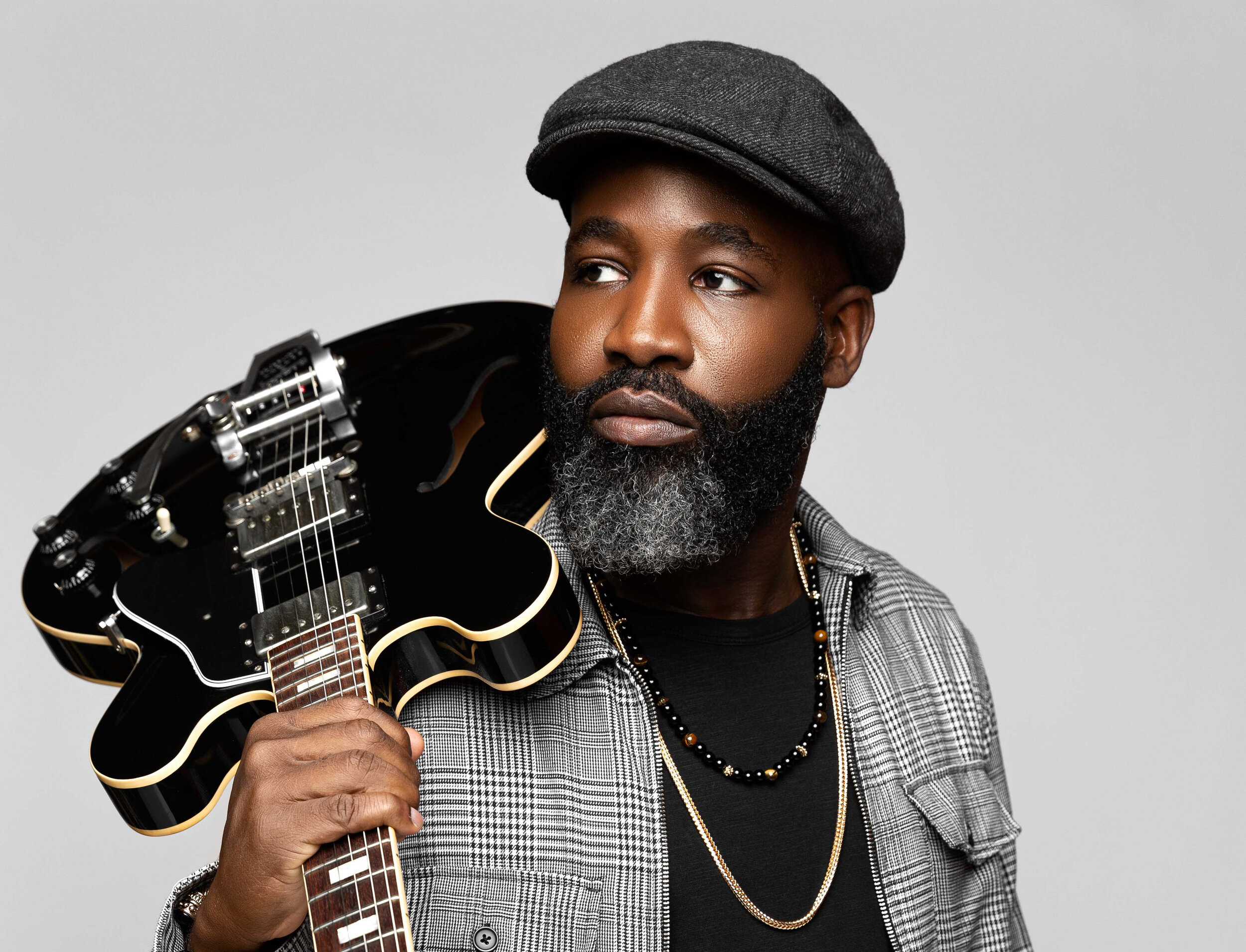Click Image to Download!
It wasn’t long ago that Sanya N'Kanta found himself near death, hospitalized, and mired in regret about his past. The Jamaican-born, genre-blurring artist/producer was battling a strange cancer-like illness that confounded doctors. He suffered from chronic vertigo, and could barely walk. Almost miraculously, though, his health rebounded once his family decided to sell their family house in Chicago and relocate to North Carolina. During the sale, it was revealed there was a leaky pipe in his home studio emitting carbon monoxide—Sanya was slowly being poisoned.
Sanya’s situation was eerily prescient of today’s COVID-19’d global hospice, and his journey, and lessons learned, remain powerfully relevant. On his latest release, the EP These Are The Days, the North Carolina-based artist explores themes of mortality and existential questioning. The 6-song collection—produced by Grammy-winning producer and engineer Chuck Alkazian (Tantric, Madonna, Soundgarden, The Romantics)—brims with gratitude, assured artistry, and sharp pop-rock hooks.
“When the pandemic hit, I decided to jump right back into the studio with an acoustic and an electric guitar. My most significant adjustment was having my wife and kids around 24/7. My goal for this album was to be introspective, and family and friendships were my inspiration,” Sanya says. He continues: “I’ve been known to blur music genres, but I decided early on that this would be a rock record. I’ve always done rock n’ roll—my early bands were all rock—it comes naturally, and it’s what I love.”
Sanya’s career has been defined by being undefinable. He gracefully moves through rock, reggae, hip-hop, house music, and electro-pop, letting fine songcraft and a well-developed artistic identity be his signatures rather than embracing trends or coloring within culture-defined guidelines. Musically and historically, he can speak the languages of Jimi Hendrix, Robert Plant, Joe Perry, Brittany Howard, J-Cole, Phoenix, Khalid, Kendrick Lamar, and The War on Drugs.
Sanya was born in Kingston, Jamaica, but, as a young boy, his family relocated to the US so his father could study for his doctorate at Indiana University. It was a traumatic move on many levels. To this day, it contextualizes Sanya’s social justice perspective in his music, and it dovetails with the themes of healing that appear in These Are The Days.
Upon moving to America, Sanya found himself embroiled in a painful dynamic. The elementary kids laughed at his accent, but his father expected him to keep it and holdfast to his culture. “I remember studying TV, and practicing how to talk without a Jamaican accent with my older brother. My dad overheard us one day, and we received a swift punishment,” he recalls. Sanya eventually perfected his US accent, and then had to endure a different backlash.
“Most of the black kids then thought I was trying to be white, that I had ‘sold out,’” Sanya says wearily. “I never accepted this because I was already aware of my culture and rich Jamaican heritage, especially the music. They made fun of my darker skin and gave me the nickname ‘Midnight’ because my skin was as black as midnight. This didn’t offend me though, I loved my skin color, and I remember feeling sorry for them that they did not. I just got off the boat from a mostly black country, so nothing they said could convince me that I was not black enough.”
He sought solace from it all in music. His father was a reggae musician, and like many reggae musicians, had expansive tastes. At 13, Sanya began his early attempts at playing guitar on his father’s instrument. His dad showed him certain basics, but encouraged Sanya to find his own way. When Sanya and his family moved to the Midwest from Jamaica, a sensitive elementary school teacher cued in on Sanya’s burgeoning talents and his need to stay grounded with music. She encouraged and nurtured his explorations and his talent, and Sanya played in every band and choir available to him.
During middle school, a church buddy loaned him Aerosmith cassettes weekly, and he became obsessed with rock n’ roll, and especially enamored with Aerosmith guitarist Joe Perry. Eventually, Sanya’s creative wanderlust came to the fore. He ventured out from rock to explore a variety of genres, including 80s synth-pop, backpacker hip-hop, neo-soul, alt-rock, industrial grunge, retro-rock, and indie rock. As a musician, however, he defined himself as a rocker in the Midwest scene where he recorded and performed regionally. After his band split up, Sanya immersed himself in the indie hip-hop world producing and dabbling as a label owner.
When Sanya remerged as a solo artist, he cultivated a career that allowed him the freedom to explore a bevy of genres, sometimes within one song. His previous album, The Counterfeit Revival, was a swirl of sounds like only Sanya can stir up. It grappled with challenging but timely issues of race, immigration, and the black experience. It was a potent, political-themed purging that cleared room for the personal explorations that characterize These Are The Days.
These Are The Days opens with, “The Hard Lesson,” a stirring acoustic indie-rock track with a pent-up feeling of longing. Lyrically, the song grapples with the difficult decision of walking away from an unhealthy friendship. The soulful ballad, “Waste My Time,” conjures classic rock weary poignance. “When I first let people hear it, they said I sounded like Rod Stewart,” Sanya says with a good-natured laugh. “It’s a love song for my family who bring me so much joy.” “I Don’t Remember” boasts chiming alt-rock guitars and a propulsive rhythm section. Musically and lyrically it is a tribute to Sanya’s roots as an indie-rock musician on the Champagne, Illinois scene, and it was inspired by Sanya encountering a long-lost friend in an airport.
The final three tracks—“Hold On,” “North Carolina,” and “Never Let You Go”—showcase the gratitude that comes just after potential loss. The elegantly essential ballad, “Hold On,” is for Sanya’s sister who survived a heavy three-week battle with COVID-19. “I wrote that song right before she got better. It was my therapy,” Sanya says. “The message is you never know when you might not have your loved ones anymore. Don’t take them for granted.” “North Carolina” is a reflective pop-rock ballad with evocative and emotive lyrics. The song is about Sanya’s second chance at life after his nearly fatal poisoning. Here, he sings: Let’s let it all go/Let’s leave this behind/Let’s start all over/And give it one more try. “Never Let You Go” features Sanya’s gift for blending genres. It is a vibrant dose of electro-rock with an emotionally direct sentiment. “That song is about never letting music, my family, or my friends go,” Sanya says.
These days Sanya is healthy, purposeful, and productive. Music is pouring out of him, and he’s already in the studio working on a follow-up EP to These Are The Days. Reflecting on his journey thus far, he says: “I remember laying in a hospital bed when I was being poisoned. I felt like I never gave everything to my art, and I was hoping and praying for one more chance. Now, I am ready to fulfill my promise.”










